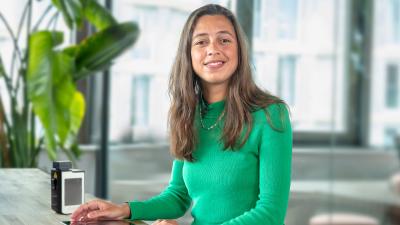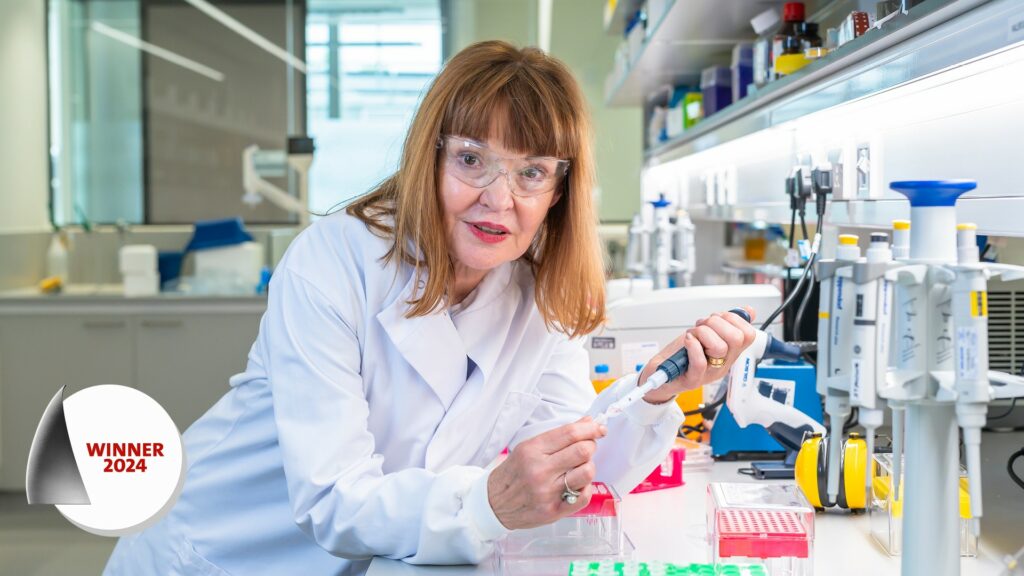The European Patent Office (EPO) announced on Tuesday the winners of the European Inventor Award 2024 at a ceremony in Malta.
The laureates were celebrated for their innovative contributions that span fields such as automotive manufacturing, computer vision, magnet technology, and renewable energy. The Award is one of Europe's most prestigious innovation prizes and was launched by the EPO in 2006. All inventors must have been granted a European patent for their invention.
This year's winners of the award were chosen from 16 finalists, out of over 550 initial candidates proposed from around the world. The finalists represent 14 countries: Ukraine, United Kingdom, Tunisia, Germany, Sweden, Brazil, USA, Iceland, Poland, Finland, France, Italy, Spain, Netherlands, Malta, and Japan.
Many of their innovations aim to improve the everyday lives of people around the world and tackle society’s biggest challenges, such as environmental issues, health, and sustainable energy.
Dame Carol Vivien Robinson from the United Kingdom received the prestigious Lifetime Achievement Award for her contributions to biochemistry with mass spectrometry. Her research has transformed our understanding of proteins within their native environments and paved the way for advancements in drug discovery and personalised medicine.
Winners were also selected in the four categories: industry, research, SMEs and non-EPO countries. To meet the winners and all the finalists, click here.
In industry, Fiorenzo Dioni and Richard Oberle were awarded for revolutionising the automotive industry with their high-precision aluminium casting methods. In research, Cordelia Schmid was awarded for her contributions to computer science, enabling enhanced machine learning applications that extend into everyday technologies.
In SMEs, Olga Malinkiewicz and her team were awarded for advancing solar energy technology with their cost-effective and environmentally friendly perovskite solar cells. In non- EPO countries, Masato Sagawa from Japan was recognised for creating the strongest permanent magnets, which are crucial in various high-tech applications.
Olga Malinkiewicz also received the Popular Prize, chosen by the public in an online poll, for her solar cell technology. “If you do not try, then the question ‘What if?’ will stay with you,” she said about the trial and error process behind her success. “It’s better to try and to fail than not to try. That was the best decision of my life.”

Rochelle Niemeijer won first place for her portable AI-driven chemistry kit that quickly identifies bacteria, credit: EPO
In the Young Inventors Prize, Rochelle Niemeijer (Netherlands) was awarded first place, followed by Valentyn Frechka (Ukraine) in second and Khaoula Ben Ahmed, Ghofrane Ayari, Souleima Ben Temime and Sirine Ayari (Tunisia) in third place.
Launched in 2022, the Young Inventors Prize recognizes the initiative and creativity of young people. The winner receives €20,000. The second and third-placed finalists receive €10,000 and €5,000, respectively.
Rochelle Niemeijer, a 29-year-old Dutch scientist, won first place for her portable AI-driven chemistry kit that quickly identifies bacteria causing infections like urinary tract infections. This invention allows for faster and more accurate medical treatment decisions.
Her invention contributes to UN sustainable development goal 3 (good health and well-being) by providing convenient and accessible diagnostic tools. The invention also brings efficiency and clarity to patient care, promotes responsible use of germ-fighting medicines, averts antibiotic misuse, and improves disease monitoring.
Valentyn Frechka, a 23-year-old Ukrainian inventor, ranked second for developing a method to turn fallen leaves into sustainably made paper, significantly reducing the need for tree harvesting in paper production.
The young Tunisian team of Khaoula Ben Ahmed, Ghofrane Ayari, Souleima Ben Temime, and Sirine Ayari were awarded third place for their innovative smart wheelchair control system, which enhances mobility and autonomy for individuals with physical disabilities.
At the award ceremony, EPO also announced a new concept for the award, starting in 2025. From next year onward, the award will be held biennially, with the upcoming edition focusing on young innovators below 30 years-old whose inventions address one or more UN goals (SDGs).
The 2025 edition will be celebrated in Iceland, marking the first of these newly biennial-focused awards, and the nominations for all technological fields remains open from today until the end of September. In alternating years, starting in 2026, the EPO will return to the original concept of the European Inventor Award.
The Brussels Times

